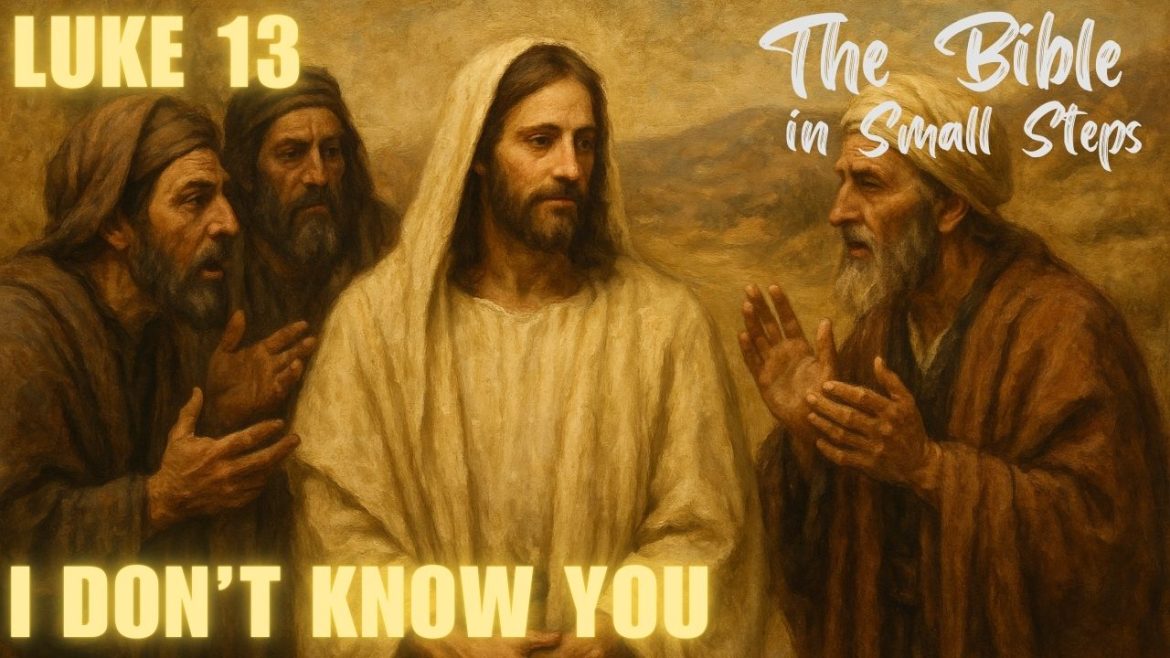In a world saturated with self-help books and self-made philosophies, Luke 13 offers a set of timeless teachings that go straight to the heart of personal growth, compassion, and spiritual direction. At the center of this chapter lies an urgent message: life is about bearing fruit, showing mercy, and choosing a path that might be narrow but leads to true belonging. Through parables, healing, and conversations with skeptics, Jesus challenges us to reflect, repent, and reach toward God with open hearts.
Fruitless Figs and Second Chances
One of the most evocative teachings in Luke 13 is the parable of the fig tree. A man finds his fig tree barren after three years and is ready to cut it down. But the gardener pleads: give it one more year, fertilize it, and maybe it will bear fruit.
This parable isn’t just about agriculture—it’s about people. It speaks to the patience of God, who sees potential in our lives even when we haven’t yet produced anything worthwhile. The “fig tree” could represent Israel, the religious leaders, or even each of us. The key takeaway? God is gracious but expects growth. Time is not infinite, and grace is not to be wasted.
Modern Life Takeaway: Whether you’re in your first job or halfway through life, the call is the same: are you bearing fruit with the time you’ve been given? Have you used your opportunities to grow in love, service, or understanding?
Healing Beyond Rules: The Woman Bent for 18 Years
Next, Jesus heals a woman crippled for 18 years—on the Sabbath. This act infuriates the religious elite who believed healing was “work” and thus prohibited on a day meant for rest.
But Jesus reframes the argument. If you feed your livestock on the Sabbath, why not free a human being from suffering? He confronts legalism with compassion, pointing out how the Sabbath was meant to bless people, not burden them.
This woman had been overlooked and dismissed. Yet Jesus saw her. He restored her not just physically, but socially and spiritually.
Modern Life Takeaway: When compassion and rule-keeping collide, love must win. Today’s equivalent might be breaking norms to help someone in need, even when it’s inconvenient or controversial.
The Mustard Seed and Leaven: Small Things, Big Kingdoms
Jesus uses two tiny things—a mustard seed and a pinch of leaven—to illustrate how the kingdom of God grows. Both start small but create something expansive and transformative.
The mustard seed becomes a tree where birds can nest. The leaven expands dough into bread. These images highlight a divine truth: great things often begin in quiet, humble moments.
Jesus reclaims these metaphors, which were often viewed negatively in Jewish literature, and redeems them as symbols of hopeful growth.
Modern Life Takeaway: Don’t underestimate the impact of small acts of kindness, quiet moments of prayer, or tiny seeds of faith. They can grow into life-changing movements.
The Narrow Door: Urgency and Intimacy with God
Perhaps the most sobering moment in Luke 13 comes when someone asks Jesus if only a few will be saved. He doesn’t answer directly. Instead, he urges people to “strive to enter through the narrow door.”
The narrow door implies effort, focus, and a specific direction. It’s not about exclusivity—it’s about intentionality. Many will claim familiarity with Jesus, but without true relationship, the door remains shut.
Jesus makes it clear: this isn’t about ritual or appearance. It’s about knowing Him and wanting to be part of the kingdom. Heaven isn’t a vague spiritual metaphor—it’s a real place with real entry. And the door won’t stay open forever.
Modern Life Takeaway: Faith isn’t passive. It requires choice and commitment. Jesus wants everyone to come through the door—but we have to want it too.
The Heart of the Chapter: God’s Gracious Patience
Throughout the chapter, one theme pulses: God is patient, but purposeful. Whether it’s giving the fig tree more time, healing the overlooked, or explaining that the door won’t always be open—He’s urging us to respond, not delay.
Jesus isn’t looking for people who wear religious accessories or go through the motions. He’s looking for hearts that say “yes” to being gathered like chicks under His wing.
Conclusion: Start Small, Walk the Narrow Path, and Bear Fruit
Luke 13 reminds us that faith isn’t flashy. It’s rooted in small, everyday decisions to grow, to love, to follow Jesus even when the world says otherwise. It’s about real transformation, not superficial performance.
In a culture that prizes autonomy and convenience, Jesus invites us into a kingdom where small things matter, mercy wins, and the door to life may be narrow, but it’s open to all who choose it. The time to enter? Now.

